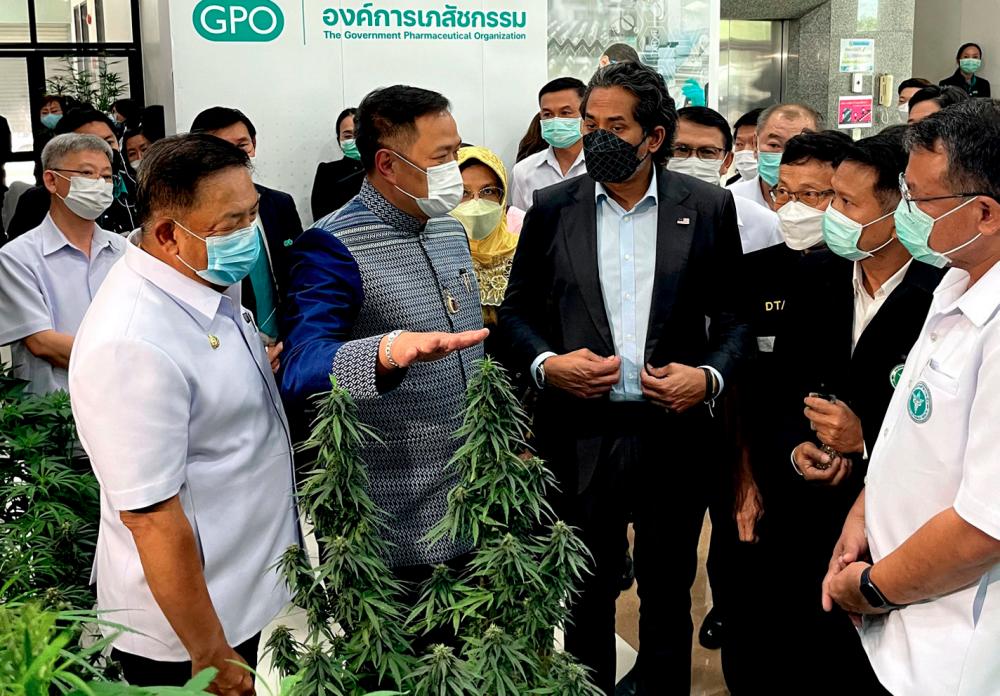By Linda Khoo Hui Li
BANGKOK, Aug 24 (NNN-Bernama) — Malaysia is keen to learn more about cannabis from Thailand, especially on its evidence-based applications and cannabis-related pharmaceutical products for medical uses, said Health Minister Khairy Jamaluddin.
He also hoped Malaysia and Thailand will continue to exchange technical knowledge and clinical research on the safe and effective use of medical cannabis products.
“Our (Malaysian and Thai) officers continue to exchange technical details so we better understand the clinical evidence for the use of cannabis for medical purposes as well as new regulatory framework,” he said at a joint press conference with his Thai counterpart Anutin Charnvirakul, here, Tuesday.
He is currently on a four-day working visit here at the invitation of Anutin, who is also the Deputy Prime Minister.
Earlier, Khairy visited the Government Pharmaceutical Organisation (GPO) where he was briefed on the medical cannabis policy in Thailand, including the practices, cultivation methods, research, and the use of cannabis and ketum for health purposes.
On June 9, Thailand became the first Southeast Asian country to legalise the cultivation and possession of medical cannabis.
Khairy said he and Anutin also spoke about the potential and the opportunities for Thailand through the GPO to supply Malaysia with cannabis products for clinical research into safe and effective use of the products.
“I have also asked Anutin to look into the possibility for Malaysia to supply Thailand with raw material of ketum leaves and plants,” he said.
Khairy also thanked Anutin for the invite to learn about the potential use of cannabis and ketum as well as the legal framework for its medical use.
“I would like to congratulate Anutin and Thailand’s Public Health Ministry which has successfully turned cannabis into something that brings benefit to the health and well being of Thai people,” he said.
He noted that the cultivation of cannabis also provide a new source of income for farmers and people.
When asked whether Malaysia plan to legalise cannabis for medical purpose, Khairy said “if clinical evidence having so”.
“One of the key learning from Thailand’s experience is to see the clinical data and data collected since the use of cannabis for medical purpose.
“If we are satisfied with the data, that will certainly influence us to open up the use of cannabis for medical purposes,” he said.
He added that Thailand’s move in taking the lead to legalise the cultivation and possession of medical cannabis is a good example within ASEAN where other member countries could use the evidence to formulate policy.
Meanwhile, Anutin said he has been looking forward to share Thailand’s experience in medical cannabis with Khairy and Malaysia.
He added that he was also happy to share his experience on the process of legalising medical cannabis.
Earlier, Khairy visited Bumrungrad International Hospital, one of the largest private hospitals in Southeast Asia, to learn about best practices in medical tourism.
— NNN-BERNAMA





